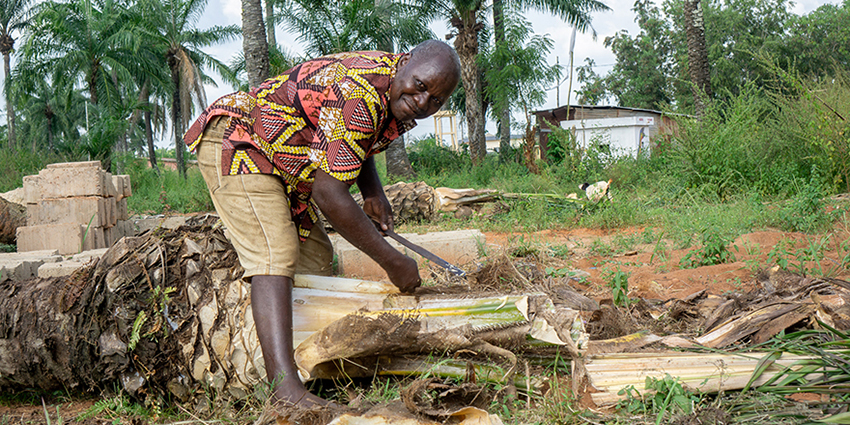By Mathilde Thonon and Flora Helard, In-Venture

In Benin, more than half of the population lives in rural areas, far from the cities where most traditional banking services are concentrated.
For many Beninese, it is both difficult to save and to take out a loan. Due to a lack of income and sufficient guarantees, rural people, but also women and young workers, are often deprived of the means of financing that could help them to start an activity and contribute to Benin’s economy. To compensate for the exclusion of these populations, microfinance institutions such as RENACA or ACFB have been set up throughout the country.
The Grameen Crédit Agricole Foundation, an actor committed to inclusive finance in rural areas, supports RENACA and ACFB in their mission to promote financial inclusion and entrepreneurship in Benin. Through its financial and technical support, the Foundation helps “to restore hope to communities and to bring people out of a situation of vulnerability,” explains Dieudonné Nganvo, director of RENACA. By offering savings, credit or insurance products adapted to disadvantaged populations, microfinance institutions offer an alternative to traditional banks and promote more inclusive and sustainable finance.
RENACA and ACFB, partners involved in the field
Created in 2008, the Réseau national des caisses villageoises et de crédit autogéré (RENACA) is one of Benin’s most active microfinance institutions. Since 2012, the Foundation has been supporting this mutualist network, which has nearly 145,000 member clients, 60% of whom are women. Present in 6 of the country’s 12 regions, RENACA offers its clients individual and group loans and non-financial services such as personal and professional financial management training. RENACA’s social performance is an indicator of success, as is its financial performance. The institution attaches great importance to its customer relations and regularly monitors its contractors to ensure that they gradually and permanently emerge from economic uncertainty.
The Association des caisses de financement à la base (ACFB) was created by a research and action NGO for the promotion of development agriculture, which initially subsidized women to help them start an economic activity. In order to perpetuate its impact, the NGO preferred the microfinance solution to that of subsidies and gave way to the ACFB in 2004, which is now present in 44 of the country’s 117 municipalities. Since 2016, the Foundation has been supporting ACFB in its missions to promote women’s entrepreneurship and the economic inclusion of the territories.
Based on the model of the Grameen Bank of the Nobel Peace Prize winner, Muhammad Yunus, ACFB specializes in group credit. The latter allows people without individual guarantees to borrow since in exchange the group must undertake to repay if one of the members is unable to do so. The mechanism therefore derives its effectiveness from the bonds of trust and solidarity that exist between members and that encourage repayment: ACFB now has a reimbursement rate of around 100%.
Promoting inclusive finance in Africa: a top priority
Relationships of trust and proximity with customers, encouraged by the establishment of numerous counters throughout the territory, are also at the root of the success of ACFB and RENACA, which together have helped several hundred thousand Beninese people to secure a better future. With the support of the Grameen Crédit Agricole Foundation, the two microfinance institutions have enabled the development of many sustainable economic activities in sectors such as agriculture, access to water, renewable energies, crafts and education in rural areas.
The Foundation works to develop inclusive finance beyond Benin’s borders. Today, it concentrates 35% of its commitments in sub-Saharan Africa and is present in a dozen African countries. Africa will continue to be a priority for the Foundation, which will concentrate 45% of its commitments in the continent by 2022.